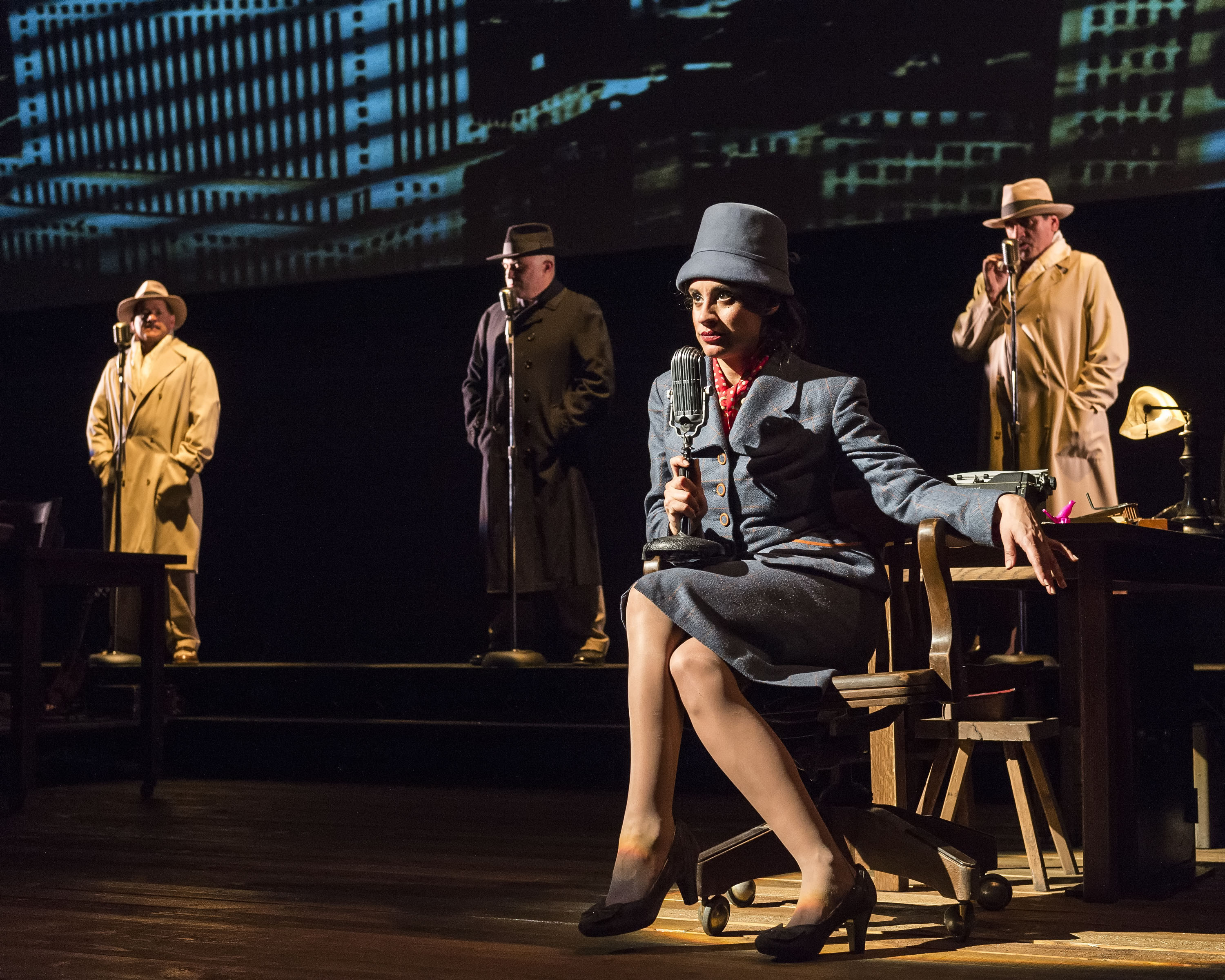Passing the Baton of Art and Activism
A Conversation with Luis Valdez, Culture Clash, and Center Theatre Group Artistic Director Michael Ritchie

The current revival of Zoot Suit marks both "a major social event in Los Angeles history"—the real events the play is based on—and "a major cultural event"—the 1978 World premiere at the Mark Taper Forum was "the first time a Chicano play had been given a mainstage production anywhere in the country, in the world, even," explained Michael Ritchie to an audience at the Tom Bradley Room atop City Hall. Ritchie was interviewing Zoot Suit writer/director Luis Valdez and the members of Latino theatre trio Culture Clash (Richard Montoya, Ric Salinas, Herbert Siguenza) for a group of Center Theatre Group supporters. Calling Luis Valdez "both an artist and an activist," Ritchie asked him to give the audience "a sense of both the arc of the creation of this show—and your own personal path within it."
"Zoot Suit is a quintessential Los Angeles play," said Valdez. "It represents the fabric of this city, the internal strife, the Sturm und Drang of Los Angeles, what forced it to be the city that it is today: human confrontation, but eventually resolution." He added that for Americans, "cultural expression is your most basic human right, so it is my privilege to be back at the Mark Taper Forum to celebrate the resurgence of Zoot Suit and…of a certain kind of social consciousness in Los Angeles that takes us into the future."
Ritchie then introduced Culture Clash and their relationship to Valdez. "In some ways, you are inheritors of an art, and you had a mentor as artists and activists," said Ritchie. "Luis had an influence on your careers, individually and collectively. Had you seen Zoot Suit originally? And where are you today in bringing this art form and this activism even further into the 21st century?"
"We’re all alumni of El Teatro Campesino," the theatre company Luis Valdez co-founded, said Richard Montoya, adding that they learned their work ethic there. "In terms of Zoot Suit being an inspiration, it’s haunting for me. El Pachuco is our founding father in many ways."
Herbert Siguenza called Valdez "immeasurable and essential…for Latino theatre makers." When he was starting out in theatre in the 1970s, "the only scripts that were out for us as Latino writers were Luis Valdez’s early works." In a sense, he said, Valdez "is our Shakespeare."
Ric Salinas echoed his partners. "There would be no Culture Clash without Luis and El Teatro Campesino," he said. He said that when Culture Clash writes and performs Chicano stories "that are very specific, they become universal. That’s what Zoot Suit does…I think our strength as writers and as a group is that we’re able to take that baton that Luis gave us, and keep with it. We’re actors and activists simultaneously."
Valdez recalled a gathering of fellow Chicano artist-activists at El Teatro Campesino to talk about what they could do to change California. "One of the things that we all agreed on, we realized, was that we’re very angry, we’re very political—we need humor." The artist, curator, and producer René Yañez went back to San Francisco and staged a comedy concert starring Culture Clash in 1984 as a direct result of that meeting. "We needed to laugh. These guys made us laugh, and it was a tremendous release and a revitalization of the community," said Valdez.
The connection between art and activism—and having a good time—remains vital to Zoot Suit as well. "The fact is, I’m trying to recapture American history. I’m singing the song of America, and Zoot Suit happens to be one of the most catchy tunes I’ve ever put together," said Valdez.
Related Articles
"Zoot Suit"
Luis Valdez brings his groundbreaking 1978 smash back to the Mark Taper Forum January 31 – April 2, 2017, to celebrate Center Theatre Group’s 50th Anniversary.
Buy Tickets
